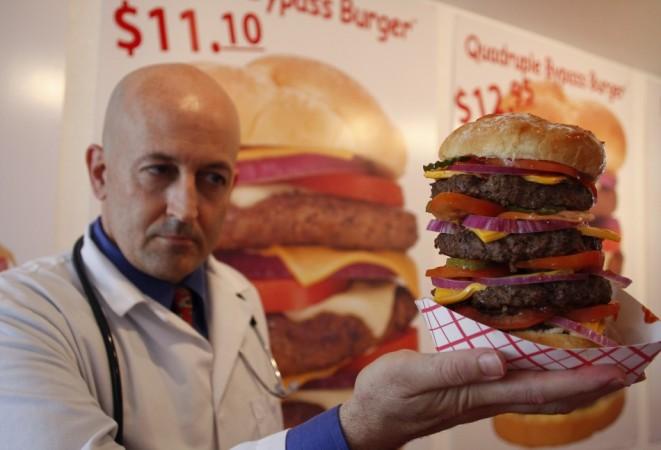
The Kerala government's decision to impose 14.5 percent 'fat tax' on burgers, pizzas and other junk food sold across delivery chains in the state has generated a mixed response from health experts.
While some believe that the tax will have a definite impact on curbing the unhealthy eating habits of people, others feel that the tax imposition will not make a difference.
A clinical nutritionist, Roma Gupta from SL Raheja Fortis Hospital, Mahim, Mumbai told the International Business Times India that the lifestyle of people living in metro cities has made them vulnerable to unhealthy eating habits.
"Easy accessibility and affordability of fast food is preferred over cooking from scratch. There is no time for anything. For some people, the additional tax rate would mean nothing. Certain groups of people will forever be ready to spend more and buy what they want to eat, tax or no tax," Gupta said.
Some experts however feel that the fast food should be taxed to lower its consumption.
"We wish Karnataka government takes up the initiative keeping in mind the public health scenario. It can partially reduce consumption of highly refined food. Not just some international products, many more high fat, high sugar and refined products should be taxed. In fact, many Indian food items like Vada, Namkeen, Bhajji, Puri among others should also come under fat tax net," Sheela Krishnaswamy, President, Karnataka chapter of Diabetic Association was quoted as saying by Times of India.
Health Department sources quoted by the publication said it is unlikely that Karnataka would introduce a fat tax as Kerala's decision would be seen as a revenue generating measure rather than an health initiative.
Experts also say that the imposition of higher tax may help in reversing the trend of fast food consumption among people in metros.
Talking about the kind of problems people face while indulging in excessive "junk food", Gupta said, "Overeating leads to obesity, diseases at alarming rates, Poly Cystic Ovarian Syndrome (PCODs) in women, asthma among other things."
Tax or no tax, lifestyle and personal choice seem to matter more to people.

















